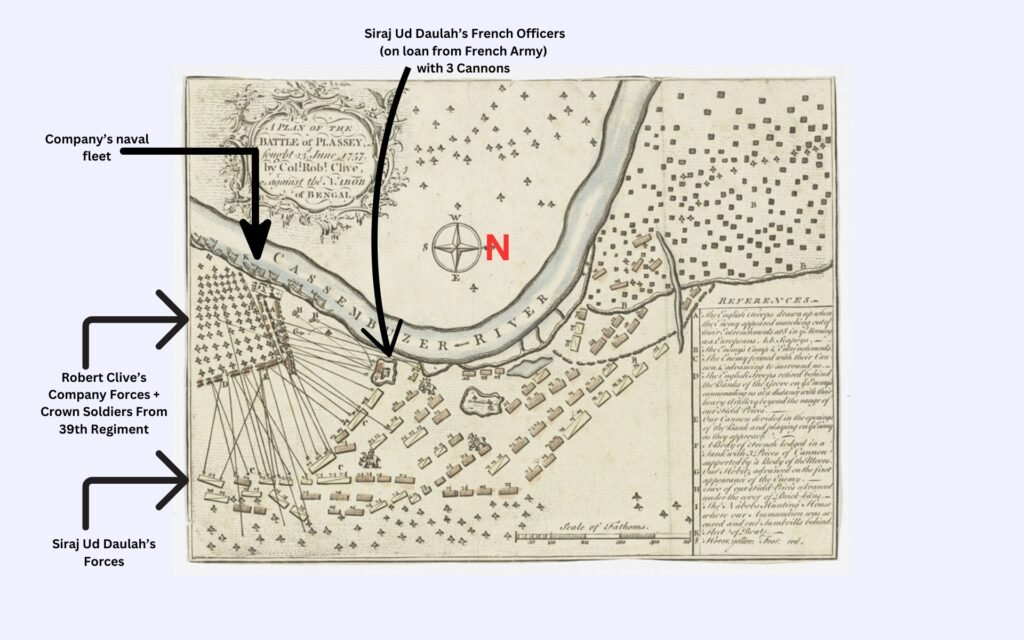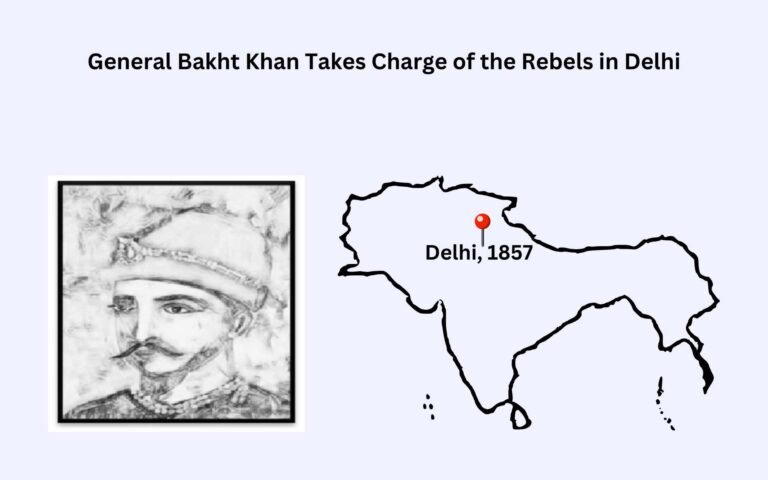Several historians and researchers have dug out several documents that display the tyrannical side of Siraj ud Daulah, the successor of Alivardi Khan.
Different accounts reveal that on multiple instances he caused boats to sink, assaulted women of noble families, and caused unnecessary cruelties just to satisfy his ego.
Further, his alleged greed for the wealth of businessmen and merchants forced the latter to seek help from the British East India Company.
Below are five notable accounts from the book Calcutta: A Cultural & Literary History by Krishna Dutta.
Understanding Siraj’s Defeat in The Battle of Plassey
First Account: The writer notes how Siraj ud Daulah dressed as a woman to enter noble Bengali families’ households and gain entry into the women’s quarters.
The family of the influential banker Jagat Seth was one of his victims. Jagat would soon join the East India Company to defeat Siraj helping them with money.

Second Account: The next instance shows how Siraj ud Daulah engaged spies to take note of beautiful women bathing in the Ganga (Hooghly) river.
He then used to send boats to carry off these women for sexual pleasure.
Third Account: Siraj was also known to ram into smaller boats with his own to capsize them. He then watched people fight for their lives with great joy.

Fourth Account: The fourth instance that was presented in the book was when Rai Durlab, the Diwan of Bengal was threatened with circumcision, a practice that is used in Abrahamic religions.
Fifth Account: Another instance records how influential nobles were spat on and beaten by Siraj.

Further, his uncontrolled anger also played a critical role in alienating Diwan Rai Durlabh and the Commander in Chief Mir Jafar against him.
Source: https://x.com/Aabhas24/status/1084312490710683648
Battle of Palashi (Plassey)
The Battle of Palashi was the end of the second decisive series of battles (the first one being the Struggle for Arcot) that established the British Empire in India. It was fought between the Nawab of Bengal Siraj ud Daulah and the British East India Company’s Army.
After the battle, the East India Company established a strong presence in eastern and southern India.

It is also said that at the end of the battle, Siraj was caught fleeing and executed. His execution was strange at a point when even Tipu Sultan who caused too much damage to the British did not meet the same fate after his first defeat.



